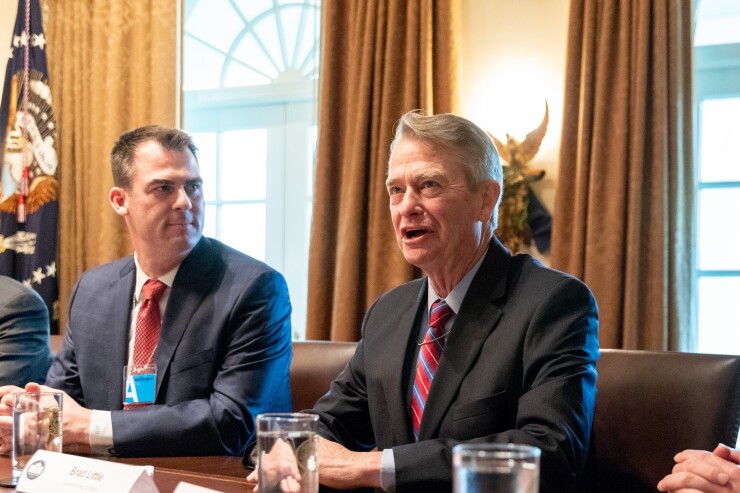Money Idaho previously used to offset healthcare costs for counties may help pay for Medicaid expansion, which is expected to cost the state $110 million over the next decade for the 10% share not being picked up by the federal government.
First a committee tasked by the Legislature with investigating whether the Medicaid expansion will result in savings to a catastrophic healthcare program for low-income residents at the county level must reach an agreement.

The committee released a
Idaho voters approved
“This is a critical time for Idahoans as open enrollment has begun,” Republican House Majority Caucus chair Megan Blanksma said in a statement.
“Those of us in the House Republican Caucus are committed to not raising your taxes to expand Medicaid,” she said, adding that it is a difficult task because Proposition 2 didn’t outline a funding source.
Lawmakers have been evaluating different methods of paying for the expansion.
Idaho Gov. Brad Little included funding in the state’s fiscal 2020 budget April 11 to cover the first six months beginning in January 2020 using money from the state’s tobacco settlement fund and savings in other state budgets expected to occur as a result of the Medicaid expansion.
The three recommendations the committee agreed on were that general fund savings and offsets from Medicaid expansion should be used to fund the expansion; that savings in the state’s Catastrophic Health Care Fund should be tapped; and that the committee should be reauthorized to continue examining the issue next year.
Republicans on the committee want to keep some funding the state allocates to counties for low-income and catastrophic healthcare programs saying the Medicare expansion will result in equivalent savings.
Counties assess local property taxes to pay for the medical indigency and catastrophic care program paying the first $11,000 on medical bills with the state picking up the rest. The expectation is that with Medicaid expansion there will be less need for the program.
The committee has been pouring through the budget looking at areas where there are healthcare savings that could be diverted to pay for the expansion, said Sen. Mary Souza, R-Coeur D’Alene.
The money the state has provided to reimburse counties for impoverished residents who are unable to pay hospital bills would go for the Medicare expansion, Souza said.
“We aren’t taking anything from the county,” Souza said. “The state gives the counties a certain amount of money to pay for this low-income population. We are just saying, we would give them less, because the Medicaid expansion is happening, so they would need less.”
The committee estimated that up to $10 million could be diverted to pay for the expansion, but members decided the state should wait a year to tap those funds, until they have hard data on what the expansion will cost and how much savings are realized by the county as a result of more low income residents having insurance.
The Democrats on the committee — Sen. Maryanne Jordan, D-Boise, and Rep. Brooke Green, D-Boise — contended in a “minority report” attached to the recommendations that there is not yet enough information about how county budgets would be impacted.





